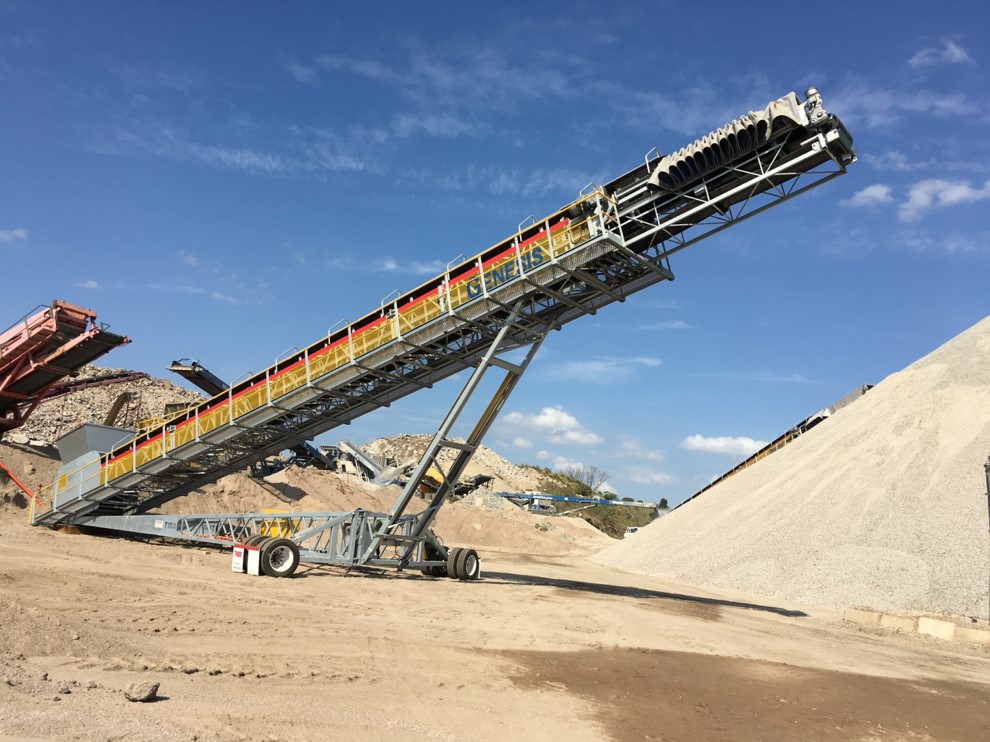Australian authorities demand some of the most stringent mobile plant guarding requirements in the world today. A lot of the crushers and screens Lincom Group import meet European standards but require quite a few additional modifications to guarding before we can supply to the Australian market.
The Purpose of Guarding
- Prevent contact with areas of the machine that could cause injury
- Secure the machine so that certain parts cannot be manipulated
- Protect against falling debris while using the machine during normal operation or during maintenance
- Allow easy operation of the machine without interfering with productivity or efficient use of the device
In this great country we sell mobile plant into mines as well as the quarry and recycling industries. Mines often have more stringent guarding requirements.
At Lincom we made a decision some years ago to set our standards to meet the more stringent mining guidelines so as we can respond quickly and confidently to most customer requirements. I say ‘most customer requirements’, as some individual companies go beyond the legislative requirements and we endeavour to meet those requests even if this is at an additional cost. We are always open to suggestions and encourage end user participation in providing best practice guarding solutions.
Guarding comes at a cost. We have a range of machines from simple stockpilers to larger triple deck screeners with 6 onboard conveyors. This actually adds anywhere from $5000 to $25,000 to the sell price of the machine.
We find that inspectors in different parts of the country have slightly different interpretations of what is actually required and again we do our best to satisfy any concerns. We often trade in older machines and on many occasions these units do not have sufficient guarding fitted. We endeavour to rectify such guarding before resale and I understand that is our legal obligation yet so many in the business are negligent in this regard.
As suppliers and end users it is critical that we do comply with the relevant guarding standards. Quite often we supply a nice new machine and commission it with all the guarding in place to visit the site 6 months after the event to find guards had been removed for some reason and have not been fully replaced. Sometimes they may get damaged or just get removed for some other reason but again I would reiterate the importance of maintaining the guards just like any other part of the machine. Guarding should be added to pre start checks.
Lincom in most cases have to design the additional guarding to meet Australian requirements and whilst most of this is user friendly some of it will take time and effort to fit. We keep improving our guards where possible but don’t let the hassle of fitting guards deter from their importance. Shortcuts often cost money in the long run.
As an operator you may well be shut down for noncompliance of machine guarding but more important than that is the risk to your employees. Every guard we fit is on there for a reason, every lanyard as a safety device and if any of you have ever been unlucky enough to experience an injury on your site, however serious because a guard hasn’t been fitted, then you would appreciate the importance of what I’m saying. Workplace injuries quite rightly result in detailed investigations. Injuries through inadequate guarding would almost certainly attract hefty fines or worse.
On some of our more dangerous situations like the chamber on our Rapidmix pugmills for example, there are unique interlocking keys which have to be removed and get positioned at the starter panel before the operator can gain access, effectively locking out the machine.
Every time you drive your car there is a high chance you put on a seatbelt. Older members would remember when seatbelts were considered a nuisance! Apart from the annoying sound to remind you it would now be a natural action to fit seatbelts before you move off.
Checking guards should attract the same importance going forward.
Featured in the February edition of Sand & Stone
